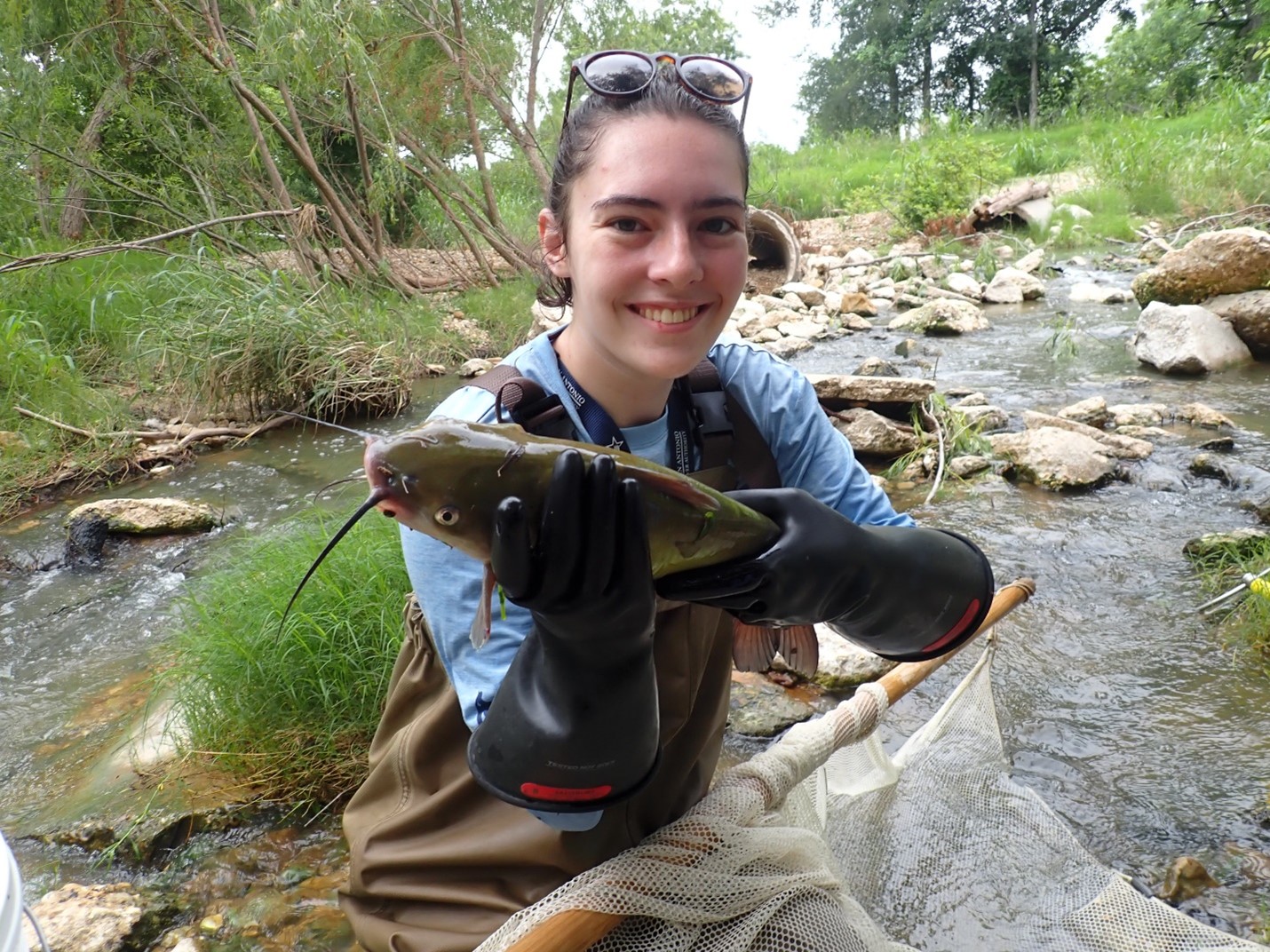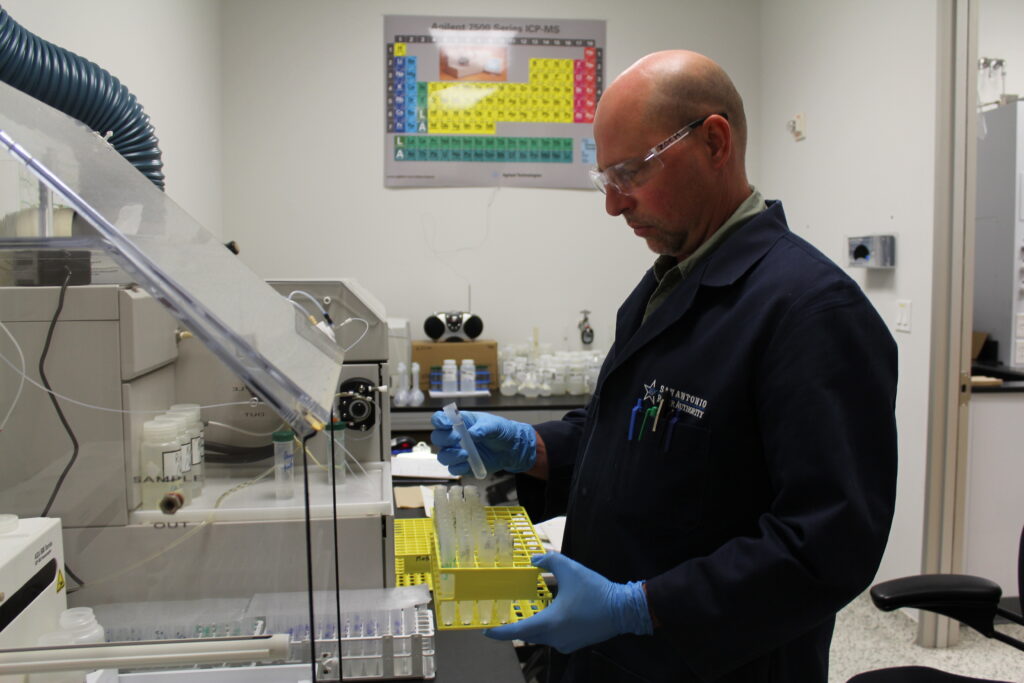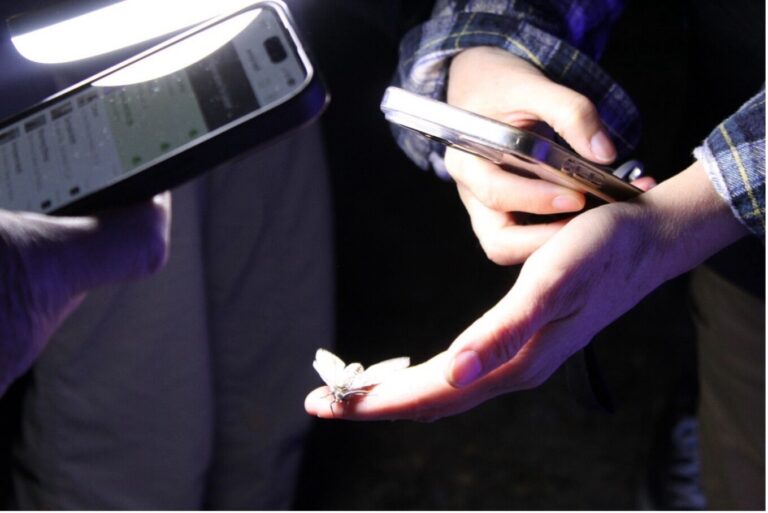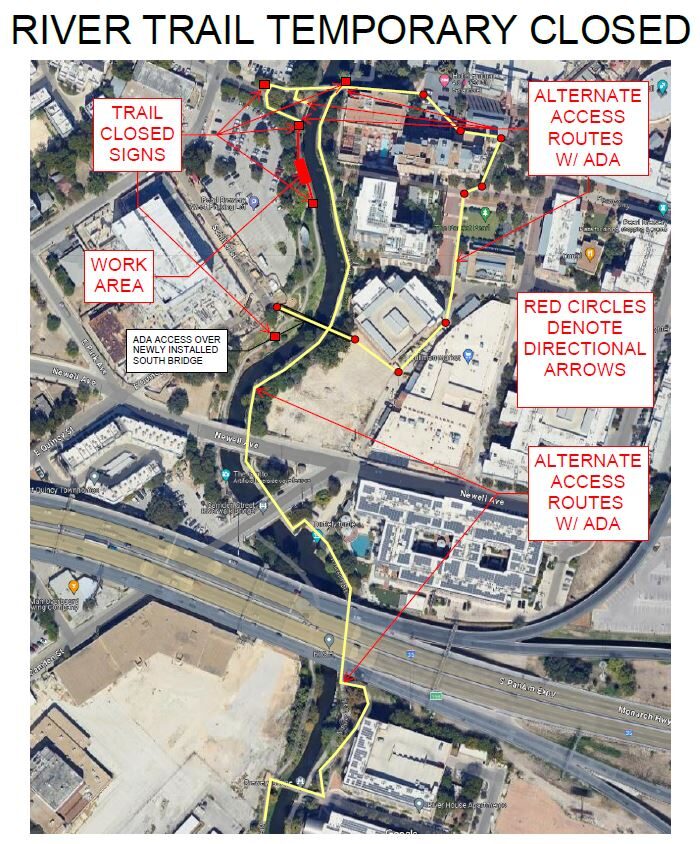The San Antonio River Authority (River Authority) recognizes the importance of giving back to the communities and constituents in and around the San Antonio River Basin. One key aspect of this initiative is engaging and collaborating with local universities and students. This engagement occurs through three primary outlets: 1) education and outreach, 2) internship opportunities, and 3) research collaboration.
Learn more about our collaboration efforts and how we work with local universities to empower the next generation of environmental scientists!
Education and Outreach
St. Mary’s University Field-Based Environmental Chemistry course students take part in a tour of the River Authority ESD lab
River Authority water quality scientists, aquatic biologists, and watershed monitoring scientists interact with various universities and programs on a regular basis. The Environmental Sciences Department Regional Environmental Laboratory (ESD Lab) conducts lab tours to show future chemists, microbiologists, and molecular biologists what a highly proficient professional laboratory looks like. River Authority scientists have provided tours for students from the University of the Incarnate Word, St. Mary’s University, Texas A&M University – San Antonio, and the University of Texas at San Antonio (UTSA). In addition to lab tours, River Authority staff also provides support for various university programs such as the inaugural South Texas Interdisciplinary Research for Undergraduates Program (STIR-UP) at UTSA. STIR-UP students had the opportunity to hear about the work the River Authority does in the watershed and joined ESD and River Authority recreation staff for a trip on the Mission Reach Paddling Trail in July.
Summer Internships

River Authority 2021 Mike Gonzales Intern Lily Bemporad
In 2012, the River Authority created the Michael (Mike) Gonzales Memorial Internship to honor the former Deputy Director of Technical Services. This internship for undergraduates is designed to stimulate interest in careers in fisheries science and management, biology, chemistry, and other natural sciences among groups underrepresented in these professions. Past Mike Gonzales interns have come from San Antonio College, Trinity University, Texas State University, UTSA, and Texas A&M University – Corpus Christi among others. Interns participate in field activities such as surface water sample collection and fish, freshwater mussel, aquatic insect, and habitat surveys, and they are also exposed to the daily operations of the ESD Lab. They also learn about the daily quality assurance and data management processes undertaken to ensure data produced is of the highest quality and subsequently analyzed and interpreted to allow River Authority staff to make informed watershed management decisions. This exposure to a wide range of environmental professions provides students the opportunity to truly understand what a career in the various scientific fields would look like. Some of these individuals have gone on to work for state and federal agencies and private entities while others have chosen to continue their education by enrolling in graduate programs.
Research Collaboration

Guadalupe Bass on the San Antonio River
The River Authority is a science-based organization that relies on research both within the basin and in similar watersheds globally to make sound watershed management decisions. To encourage these types of projects within the basin, staff will partner with local academic institutions and provide guidance and support in any way possible. These projects range from assessing the restored Guadalupe Bass population in the Mission Reach of the San Antonio River Walk, an economic value assessment of that same population, the abundance and source of microplastics, and particle transport studies that can detect the sources of specific pollutants such as nitrogen and phosphorus. Collaboration can also occur to address non-native species issues such as apple snails. Students and faculty from Southwestern University are currently researching if the apple snail population in the San Antonio River Basin is genetically distinct from other introduced populations in the United States.
By engaging the future chemists, biologists, microbiologists, environmental scientists, and myriad other natural science professionals in unique and meaningful ways, we can help ensure safe, clean, and enjoyable creeks and rivers for generations to come. Interested in future internship opportunities or a guided tour of our ESD lab? Visit the Careers page on our website to check on current openings and check out our Education page to request a tour or a presentation!





